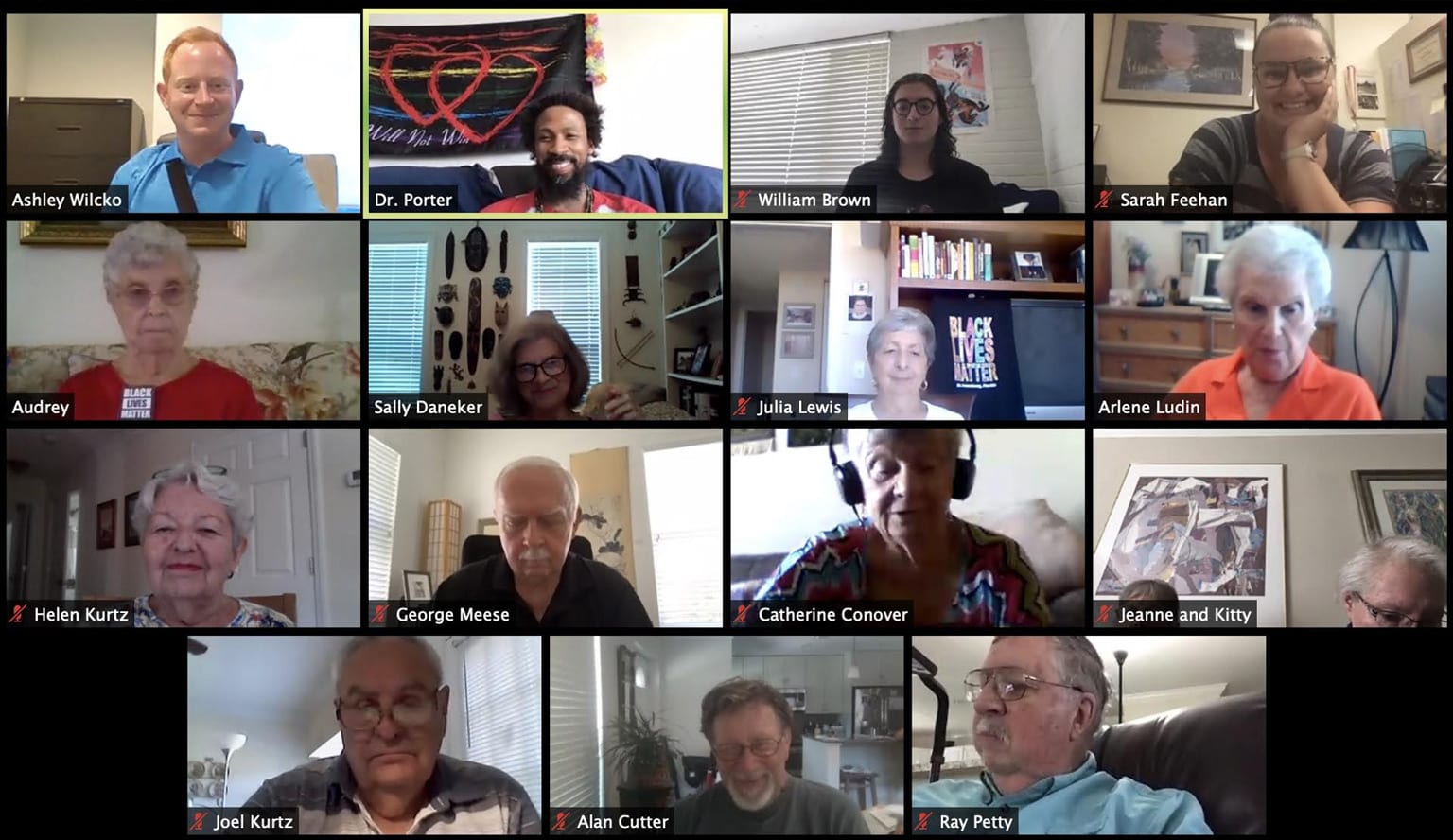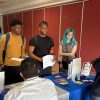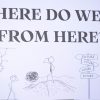
Students searching for Reflective Service-Learning opportunities this fall were invited to join seniors at the Westminster Shores community for virtual discussion groups on a range of subjects.
Alex Gordon ’21 sat on a folding camp chair at Cobb Loop furiously dialing phone numbers of her classmates on Election Day and asking them if they had already voted.
It was one of the many virtual volunteer opportunities she’d taken on since the start of the coronavirus pandemic that changed the way Eckerd College students completed their required Reflective Service-Learning (RSL).
“I have volunteered with Florida Public Interest Research Group (PIRG) Students and with Westminster Shores both virtually,” said the junior environmental studies student from Houston, Texas. “The main difference is just the online setting, really. It took a bit more effort to build community amongst the volunteers, but as we established a sense of community, the online format got a lot easier to work in.”
Director of Service-Learning Ronald Porter ’05, Ph.D., agrees. He began pivoting to virtual service opportunities in the Spring Semester as it became increasingly clear that the pandemic would limit travel and face-to-face interactions. “In the spring, I asked organizations we usually partner with if they had any remote opportunities, and the overwhelming answer was no,” Porter explained. “That’s when I decided to seek out virtual volunteer jobs and create a database for our students and faculty, so that they could meet their requirements. By the time we returned for the fall, many of our regular partners had begun to realize they had administrative needs such as grant writing and funding applications that could be handled by volunteers virtually.”
Reflective Service-Learning is a graduation requirement at Eckerd that requires every student to complete 40 hours of pre-approved volunteer work and then write reflective essays on what the work has meant. In a normal year, a student can earn hours by taking a Spring Break Service Trip, enrolling in a course that offers RSL hours, or submitting and fulfilling a project proposal approved by the Office of Service-Learning. Porter said it was important to him that even in this environment students still had all those options available to them. After building the database of virtual volunteer opportunities that included nationwide programs like the Red Cross and AARP, Porter focused his work on supporting faculty members who needed to rethink their RSL projects. Now students can log on to tutor St. Petersburg’s K-12 children, help domestic violence survivors through Community Action Stops Abuse (CASA), and more.
“We’ve only had one in-person volunteer event, a campus cleanup with [Associate Professor of Rhetoric] Alexis Ramsey-Tobienne’s class, and we skipped a lot of the formalities that would cause people to gather, like weighing the final product of the cleanup,” Porter said.
One of the most popular projects has been weekly discussion groups with Westminster Communities, a group of residential senior communities that have been closed to outside contact since the start of the pandemic.
“Having those intergenerational conversations, particularly when the social unrest was unfolding over the summer, was cathartic for them. It allowed them to identify racism and how they had been raised to be racist and really sit with that,” Porter said.
Even after the world puts COIVD-19 in its rear view, Alex is certain virtual volunteer experiences will continue to be a necessary component of Service-Learning at Eckerd.
“A lot of services involve working with vulnerable communities [like working with the residents at Westminster Shores], so we should take all precautions possible to protect not only ourselves but the communities we are working with,” Alex explained. “Virtual service also allows for increased access to opportunities that might not have been possible if they were solely offered in person. For example, I was able to work with schools all across the state of Florida due to our virtual nature, something I just would not have had access to if everything was only done in person.”












